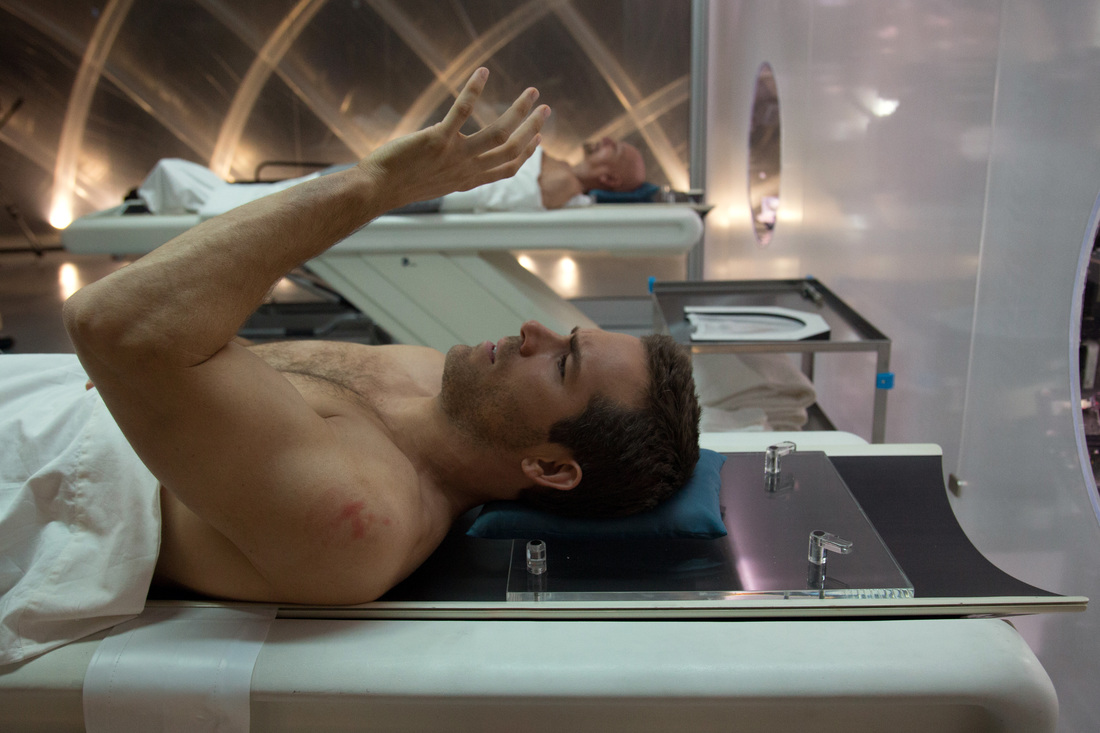An extremely wealthy architect and developer named Damian (Ben Kingsley) finds out he has terminal cancer, with only a few months to live at most. Instead of falling into depression or rage or even acceptance of his own inevitable mortality, Damian is able to take a third option. He is contacted by a company called Phoenix Biotech which offers him, in exchange for an exorbitant sum of money and absolute secrecy, the chance to transfer his consciousness into a new, cloned body. The inventor of the procedure, a man called Professor Albright (Matthew Goode) is willing to offer this procedure to those people whom he deems to have contributed significantly to society; if we can give geniuses more time to pursue their work without the pesky problem of death getting in the way, then wouldn’t the benefit to the world be incalculable? Damian wakes up in his new skin (Ryan Reynolds) next to his now dead original body. While first taking some time to enjoy his second youth, he soon finds out that he wasn’t told the whole story before he signed on the dotted line…
Self/less is a movie that encapsulates many classic science fiction topics and ideas such as mortality, immortality, and the effect of both on individuals. And if the movie had been better executed, than it could have been really, really good; I am personally very interested in topics such as mind uploading and other speculative transhumanist technology. Sadly, this movie ends up being more of a sci-fi B movie due to its inability to address the these ideas in any but the most simplistic and shallow ways. The movie frequently breezes over important plot points and never takes the time to adequately think through the implications of the technology that it is supposed to be exploring. We are left little time to ponder questions as Ryan Reynolds is whisked from gunfight to car chase and then to more gun fights. None of this is helped by the fact that the dialogue is very simplistic and frequently trite, while the plot is incredibly predictable (although to be fair the trailer I saw spoiled pretty much the entire movie weeks before I saw it).
The strange thing about all of this is that the film was directed by Indian-American filmmaker Tarsem Singh, who is known for making very unusual and surrealistic films such as The Cell and The Fall. What I think happened is that Singh gave the original much more complex and intricate screenplay of this film to the studio, who said something along the lines of “We like it, but can you change it so the ‘average’ film-goer will like it?” This is because most of Hollywood operates under the assumption that viewers are morons, which I disagree with for the most part, even if looking at the box-office charts from the last few years makes that difficult. The result of all this is that what likely started out as an intelligent and thoughtful science-fiction film turned into just another generic Hollywood moneymaker with a few good ideas. Our loss.
Grade: C

 RSS Feed
RSS Feed
